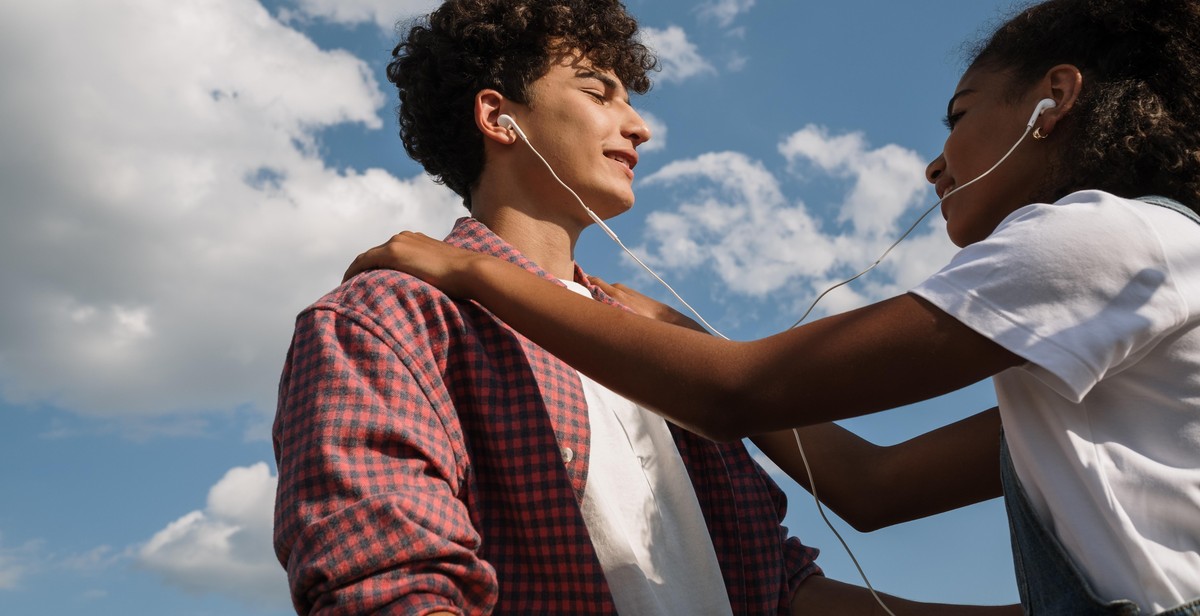Mastering the Art of Listening in Love: A Love Guru’s Guide
As a professional article writer and content creator, I have spent years researching and studying the intricacies of love and relationships. Through my personal experiences and extensive knowledge in the field of psychology, I have come to realize that one of the most important aspects of a successful relationship is the ability to listen.
Listening is not just about hearing the words that your partner is saying, it’s about truly understanding their needs, desires, and emotions. It’s about being present in the moment and giving your partner your undivided attention. Unfortunately, in today’s fast-paced world, many of us struggle with this essential skill.
The Importance of Listening in Love
When we don’t listen to our partners, we risk misunderstandings, miscommunication, and hurt feelings. It’s easy to fall into the trap of assuming we know what our partner is thinking or feeling, but this can often lead to assumptions and misconceptions. By truly listening to our partners, we can avoid these pitfalls and build a deeper, more meaningful connection.
My Personal Experience
I have personally experienced the transformational power of listening in my own relationships. By making a conscious effort to be present and truly listen to my partner, I have been able to build a stronger, more fulfilling connection. Through this guide, I hope to share my insights and help others master the art of listening in love.

The Importance of Listening in Love
As a love and relationships psychology guru, I have seen many relationships fail due to a lack of communication. And at the core of communication is listening. In fact, I believe that listening is the most important aspect of any successful relationship.
My Personal Experience
I have personally experienced the power of listening in my own relationships. When I was younger, I had a tendency to interrupt my partners and focus solely on getting my point across. This created a lot of tension and misunderstandings in my relationships. It wasn’t until I learned the importance of active listening that I was able to improve my relationships.
Active listening involves fully concentrating on what your partner is saying, without interrupting or thinking about your response. It also involves asking clarifying questions and summarizing what your partner has said to ensure that you have understood them correctly.
By implementing active listening, I was able to better understand my partner’s needs and feelings, which helped me to respond in a more compassionate and understanding way. This, in turn, deepened the connection and trust in my relationships.
The Benefits of Listening in Love
There are many benefits to listening in love. Here are just a few:
- Improves communication
- Builds trust and intimacy
- Reduces misunderstandings and conflicts
- Increases empathy and understanding
When you listen actively to your partner, you are showing them that they are important and valued. This strengthens your emotional connection and creates a safe and supportive environment for your relationship to thrive.
| Active Listening | Passive Listening |
|---|---|
| Concentrating on what your partner is saying | Only hearing what your partner is saying |
| Asking clarifying questions | Assuming you know what your partner means |
| Summarizing what your partner has said | Forgetting what your partner has said |
Overall, mastering the art of listening in love is essential for any successful relationship. It takes practice and effort, but the benefits are worth it. By actively listening to your partner, you can deepen your emotional connection and create a loving and supportive relationship.

The Art of Listening
As a love and relationships psychology guru, I have seen time and time again how important listening is in any relationship. Listening is not just about hearing the words that your partner is saying, but it is about actively engaging with them and understanding what they are trying to communicate. In this section, we will discuss the two types of listening that are crucial in mastering the art of listening in love: active listening and empathetic listening.
Active Listening
Active listening is the foundation of any good conversation. It involves being fully present in the moment and giving your undivided attention to your partner. Active listening means that you are not distracted by your phone, the TV, or anything else that is going on around you. It means that you are focused on your partner and what they are saying.
When you are actively listening, it is important to show your partner that you are engaged. You can do this by asking questions, summarizing what they have said, and giving them feedback. This will show your partner that you are interested in what they have to say and that you value their thoughts and feelings.
Empathetic Listening
Empathetic listening goes one step further than active listening. It involves not only hearing what your partner is saying, but also understanding and feeling what they are feeling. Empathetic listening requires you to put yourself in your partner’s shoes and try to see things from their perspective.
When you are empathetically listening, it is important to validate your partner’s feelings. You can do this by saying things like “I can understand why you feel that way” or “It makes sense that you would feel that way.” This will show your partner that you are not only listening to them, but that you are also trying to understand them.
In conclusion, mastering the art of listening in love requires both active listening and empathetic listening. By being fully present in the moment, engaging with your partner, and understanding their thoughts and feelings, you can strengthen your relationship and build a deeper connection with your loved one.

Barriers to Listening
As a love guru, I have seen many couples struggle with communication in their relationships. One of the biggest obstacles to effective communication is the inability to listen. There are several barriers that can prevent us from truly listening to our partners:
Distractions
Distractions are all around us, especially in this digital age. It’s easy to get sidetracked by notifications on our phones, the TV in the background, or even our own thoughts. When we’re not fully present in the moment, we miss out on important cues and messages from our partners. To combat distractions, try to create a quiet and focused environment when you’re having important conversations. Put away your phone, turn off the TV, and give your partner your undivided attention.
Defensiveness
When we feel attacked or criticized, our natural instinct is to become defensive. This can lead to a breakdown in communication, as our focus shifts from listening to defending ourselves. To overcome defensiveness, try to approach conversations with an open mind and a willingness to listen. Remember that your partner’s feedback is not a personal attack, but an opportunity for growth and understanding.
Assumptions
We all have our own biases and assumptions about the world, which can color our perceptions of our partners. When we assume we already know what our partners are going to say, we’re not truly listening to them. To avoid assumptions, try to approach conversations with a curious and open attitude. Ask questions and seek clarification to ensure that you’re truly understanding your partner’s perspective.
By recognizing and overcoming these barriers to listening, you can improve your communication skills and deepen your connection with your partner.

How to Improve Your Listening Skills
Listening is a crucial aspect of communication in any relationship. It helps to build trust, understanding and intimacy. However, it can be challenging to listen actively, especially when emotions are running high. Here are some tips on how to improve your listening skills:
Practice Mindfulness
Mindfulness is the ability to be fully present in the moment, without judgment or distraction. When you practice mindfulness, you can focus on what your partner is saying, and you can respond appropriately. To practice mindfulness, find a quiet place where you can sit comfortably. Close your eyes, take a deep breath, and focus on your breath. When your mind wanders, gently bring it back to your breath. With practice, you can develop the ability to be mindful in any situation.
Pay Attention to Nonverbal Cues
Nonverbal cues, such as facial expressions, tone of voice, and body language, can provide important information about how your partner is feeling. Pay attention to these cues, and try to understand what they are communicating. For example, if your partner is speaking in a soft voice and avoiding eye contact, they may be feeling sad or vulnerable. By paying attention to these cues, you can respond in a supportive and empathetic way.
Avoid Interruptions
Interruptions can be frustrating and can disrupt the flow of conversation. Avoid interrupting your partner, even if you disagree with what they are saying. Instead, wait until they have finished speaking before responding. If you need clarification or have a question, wait for an appropriate pause before asking. By avoiding interruptions, you can show respect for your partner and create a safe space for open communication.
| Summary |
|---|
| Improving your listening skills is essential for building a strong and healthy relationship. By practicing mindfulness, paying attention to nonverbal cues, and avoiding interruptions, you can create a safe space for open communication and show respect for your partner. |

Conclusion
As a love guru and experienced writer, I have learned that communication is the key to a successful and happy relationship. However, communication is not just about talking, but also about listening. In fact, listening is the most important aspect of communication.
Mastering the art of listening takes practice and patience. It involves being fully present in the moment and giving your partner your full attention. It also means being empathetic and understanding their perspective.
By listening actively and attentively, you can improve your communication skills and strengthen your relationship. You can avoid misunderstandings and conflicts, and instead, build a deeper connection with your partner.
Tips for mastering the art of listening:
- Put away distractions such as your phone or computer
- Make eye contact and show interest in what your partner is saying
- Reflect on what they are saying and ask clarifying questions
- Avoid interrupting or giving unsolicited advice
- Show empathy and understanding, even if you don’t agree with them
Remember, listening is not just about hearing words, it’s about truly understanding and connecting with your partner. By mastering the art of listening, you can create a stronger and more fulfilling relationship.
